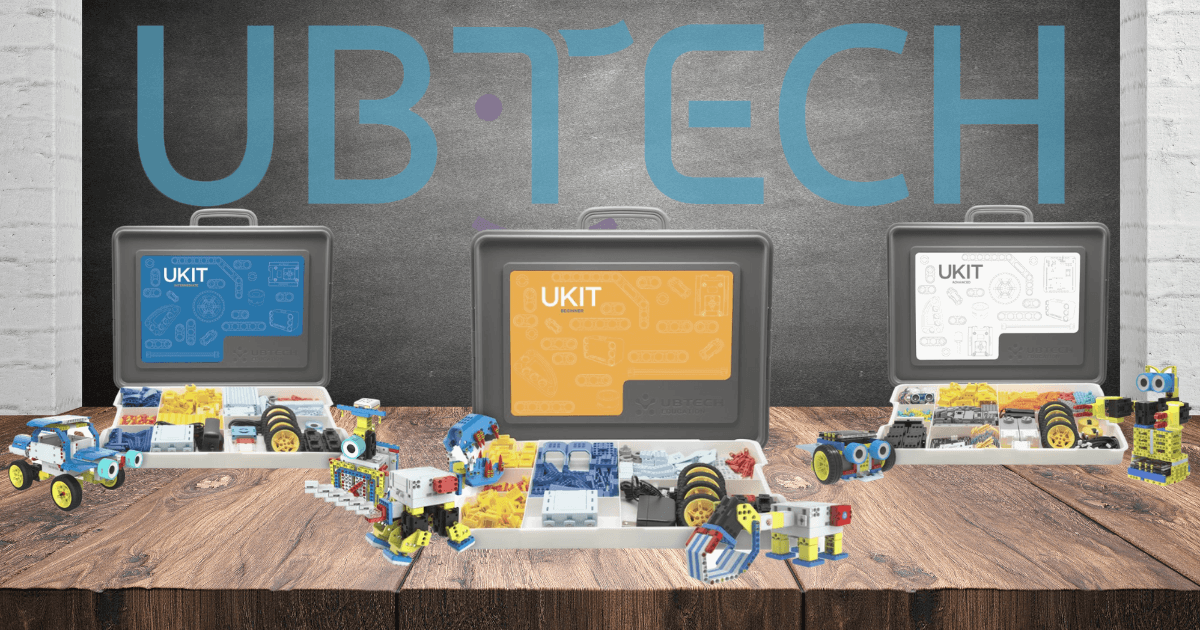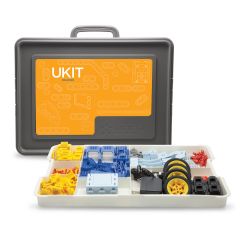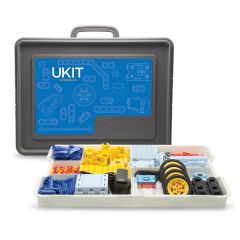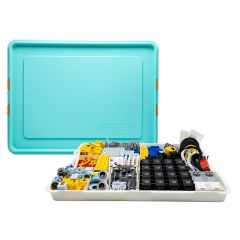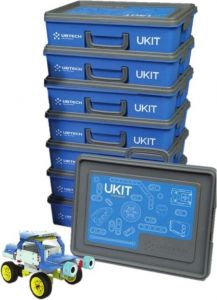This post on the top jobs skills of 2025 has been repurposed from our partners with UBTECH Education. You can find the original post on the UBTECH website.
Equipping students with skills for the future is challenging since we don't know what their future workforce will look like. We can make an educated guess, though, and, in this post, which we've repurposed from our partners at UBTECH Education, we're looking at some of the most needed skills. Like us, UBTECH's team is passionate about preparing students for the future of work. They also know this means equipping them with the STEM skills to thrive. Here's how UBTECH's STEM products can help kids acquire what writers at the World Economic Forum identified as the top 10 skills of 2025 with insight into each.
According to the top minds at the World Economic Forum, there are four types of 21st century skills that are going to be the most valuable over the next few years. They're categorized as problem-solving skills, self-management skills, working with people, and skills in technology use and development. Each of the top 10 skills of 2025 certainly falls into one of these four areas. Also, there's a very clear mix of hard and soft skills. So, what are the skills students would most benefit from building?
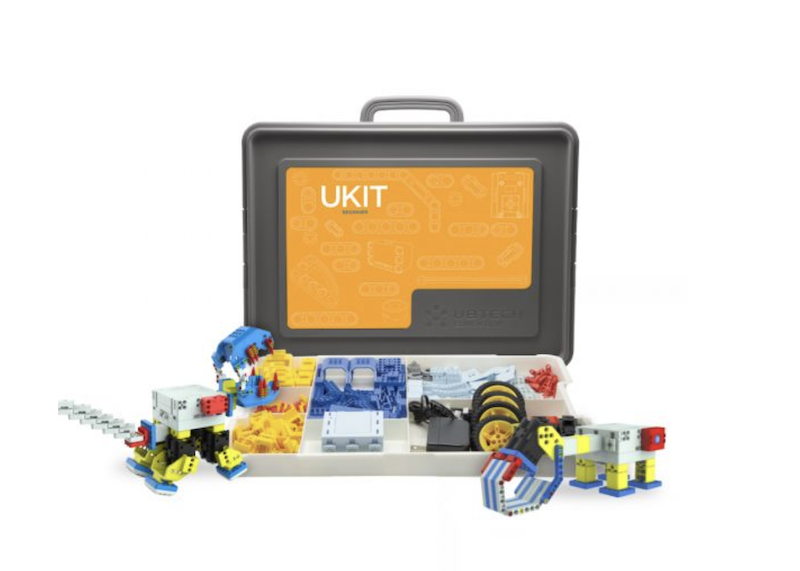
- Analytical thinking and innovation (problem solving)
- Active learning and learning strategies (self-management)
- Complex problem solving (problem solving)
- Critical thinking and analysis (problem solving)
- Creativity, originality, and initiative (problem solving)
- Leadership and social influence (working with people)
- Technology use, monitoring, and control (technology use and development)
- Technology design and programming (technology use and development)
- Resilience, stress tolerance, and flexibility (self-management)
- Reasoning, problem solving, and ideation (problem solving)
Here's how our partners from UBTECH break down the top 10 skills as determined by the WEF team.
Analytical thinking and innovation
One of the top 10 skills of 2025 from the World Economic Forum team is predicted to be analytical thinking and innovation. In Unit Two of the UKIT Beginner curriculum for the UKIT Beginner Kit, kids can begin to build analytical thinking skills by creating a robot to help rehabilitate a red-shouldered hawk nestling after it was abandoned by its mother. They have to investigate the behavior of the parent bird and work to design their own solution to save the nestling.
Active learning and learning strategies
Active learning, a 2025 job skill according to the WEF team, encourages greater student participation and engagement during class time. UBTECH's supportive teacher guides involve a 5E lesson structure to help encourage hands-on discovery and a reflective learning process. For example, the compatible pieces and curriculum support students in elementary through high school and the all-inclusive UKITs truly provide a holistic learning experience as project complexity increases and students’ skills evolve and expand.
Complex problem-solving
As technology evolves, advances, and becomes more crucial in our lives, the lines between the physical, digital, and biological worlds become even further blurred. To support the next generation of thinkers and innovators, the UBTECH team created their own AI Foundations curriculum. This content helps teachers introduce and reinforce multi-faceted problem solving by having students examine critical issues, such as how artificial intelligence can impact society. Therefore, by learning and building a strong understanding of AI, students gain complex problem-solving skills, a top 10 skill for the jobs of 2025.
Critical thinking and analysis
How can a quadruped dinosaur robot help students level up? By conceptualizing and designing a robot to perform a certain task or solve a problem, analyzing its success, and then iterating and testing to optimize performance, students develop vital critical thinking and analytical skills. These skills are also essential for developing the robots of the future.
Creativity, originality, and initiative
Technology is not a cut-and-paste, one-size-fits-all topic. So, by pairing the UKIT hardware with the super innovative curriculum, it encourages out-of-the-box thinking. With over 900 pieces in the UKIT Advanced, in particular, students can flex their creative muscles as they build limitless variations with sensors, servos, and other pieces to create their own unique robot. The curriculum challenges students to design a robotic model that tackles societal challenges with a real-life impact. With skills, such as creativity, originality, and initiative identified as some of the top skills for various jobs of 2025, the UBTECH STEM curriculum helps students foster these skills in the classroom.
Leadership and social influence
Leadership and social influence skills, as defined by the World Economic Forum team, could develop when students learn with robotics. This UKIT system offers a project-based learning approach to robotics. Also, it allows students to work in small groups or pairs, helping them to practice more effective communication when moving ideas forward. Therefore, by allowing students to learn about leading within groups, they can become equipped with leadership skills for the future.
Technology use, monitoring, and control
The most recent landing on Mars with the ‘Perseverance' rover showed the breadth of how many people were involved in not only creating the rover, but also getting it to Mars. Learning to use hardware along with software are skills that we'd consider essential for many jobs of 2025. In the Or-Bot curriculum for the UKIT Advanced, students are introduced to these skills specifically while learning about NASA. They will also get to explore how robotics can play into future missions—even to Mars.
Technology design and programming
Programming is certainly a vital part of all UBTECH Education products, including their free programming environment, uCode. While there is no doubt that learning coding is a large part of the future, it also aligns with the World Economic Forum’s top 10 job skills of 2025 in combination with tech design. Within uCode, students can not only program their UKIT robots but also create digital games and animations, control 3D simulations, and utilize real-time AI programming. Sample codes are also available to help and inspire the students. And, you can get started with uCode very easily!
Resilience, stress tolerance, and flexibility
The UKITs come with pre-designed builds to give students a great starting point. They also, however, leave room for them to cultivate original ideas and improve on their original design. Through iterative design, kids can develop resilience, stress tolerance, and flexibility skills by learning how to work through any frustration and maintain a problem-solving mindset when their code or robot isn't working as intended. So, that's why instilling, teaching, and building these strengths continue to be key skills for the jobs of the future.
Reasoning, problem-solving, and ideation
According to that World Economic Forum’s Future of Jobs Report, demand for reasoning, problem solving, and ideation skills is growing. The UBTECH curriculum certainly supports these skills starting at the earliest level with the UKIT Beginner. For example, with projects like building the golf club robot and programming its swing trajectory, students can learn about force and motion in a very hands-on way. As they adjust their Golf Club to make a hole in one and figure out how to achieve better precision and accuracy, students can also gain vital problem-solving skills.
Have you made it a point to teach children any of these skills in your lessons? If so, feel free to comment below to share your experiences. We thank our friends from UBTECH Education for this post and hope it provides value to our community of educators. To find all the UBTECH STEM offerings on our store, click below. Finally, if you have questions about these UBTECH solutions, don't hesitate to contact us. Follow us on Twitter and Instagram for more and check out the UBTECH Education accounts as well!



